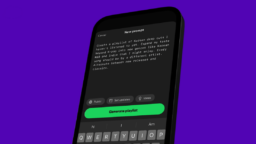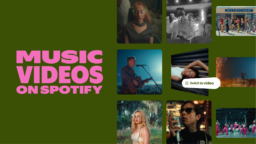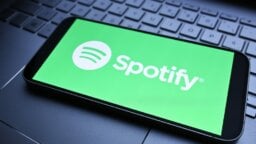Last Sunday Nicki Minaj hopped on Twitter to air a few grievances.
The pop star accused the rapper Travis Scott of using an elaborate merch bundle scheme to boost his album sales, alleged Spotify blackballed her due to premiering her latest album Queen on Apple Music, and insinuated Republic Records, her label, didn’t intervene in the matter because they didn’t want to harm the release of Ariana Grande’s then upcoming album Sweetener.
That was quite a laundry list of complaints to dole out in a single afternoon. Spotify denied the accusations of blackballing Minaj’s album with a spokesperson from the company saying: “Her song ‘Bed’ actually saw an increase based on the promotions put behind the campaign. The company continues to be big fans of Nicki.”
Regardless, Minaj’s tweets resurfaced what remains a strenuous relationship between musicians and streaming platforms.
Meanwhile, Cupcakke, a Chicago rapper, raised a similar concern on Twitter at YouTube, alleging that her latest single “Blackjack” didn’t appear in the search bar.
Both comments illustrate how artists much artists in 2018 concede to streaming services.
Where early artist commentary marked derision towards these new players entering into the music space, artists public statements now read like workers in tense labor negotiations with their boss.
Back in 2013 Thom Yorke, the lead singer of Radiohead, took an actively combative stance towards Spotify in an interview with the Mexican culture site Sopitas saying: “We can build the shit ourselves, so fuck off. But because they’re using old music, because they’re using the majors… the majors are all over it because they see a way of re-selling all their old stuff for free, make a fortune, and not die.”
Yorke’s comments critiqued Spotify but also put blame at the feet of major labels for continuing a century old tradition of repackaging and selling music.
He balanced a classic 20th century skepticism towards the major label system – to quote Q-Tip back with A Tribe Called Quest “Industry rule number four-thousand-and-eighty; Record company people are shady” – with an updated 21st century bone to pick with the digital companies profiting off as outsiders to the industry.
He saw that the streaming first model wasn’t actually hurting labels, but rather the artists were seeing even more money escape their pockets.
A year later Taylor Swift wrote in the Wall Street Journal to champion the album format.
She recognized the shift from the album towards the future proposed by Spotify, as one that would directly be to her disadvantage. Swift directed a few choice words at record labels writing “I hope they don’t underestimate themselves or undervalue their art.”
Swift’s open letter wisely emphasised the relationship between fans and artists but misread centering the album at the core of that relationship.
An album may be a compelling format for Swift, but it’s still a product of a major label system built to throw out formats – remember cassettes and pre-resurgence vinyl? – for higher margins.
Swift, without ever mentioning the company’s name, placed blame at Spotify’s feet – all while the larger music industry was already in the process of pushing consumers away from digital, much less physical, albums.
Yorke’s dual critique of music streaming and labels shifted into superstar artists pointing their finger at Spotify for upsetting their ecosystem.
Not all such public expressions are born out of frustration.
Last December Will Toledo, known as the indie rock singer Car Seat Headrest, said he made $30,000 through streaming on Spotify to rebut negative Twitter comment made by Geoff Barrow of Portishead towards the streaming platform.
Toledo’s positive tweets towards Spotify stepped outside the norm of the canned public relationships tweets that champion playlist placement and the persistent claims of artists who receive a pittance despite remarkable streaming numbers.
Apple Music unsurprisingly receives little press in these public squabbles. The California tech giant reportedly pays more per stream than competitors like Spotify or YouTube – but they’re also often directly financing musicians.
Last year Chance the Rapper in an unprovoked tweet revealed that Apple Music gave the Chicago star $500,000 for early exclusive rights to his album Coloring Book.
Music Business Worldwide also recently reported that Apple paid for numerous Travis Scott music videos and for his Beats 1 radio show.
Even if artists don’t love the model, none will directly bite the hand that feeds their marketing budget.
For popular musicians there is a clear lack of a collective voice to address these issues, leaving individuals huffing towards their new tech gatekeepers.
The American Federation of Musicians, the United States’ largest music union, earlier this summer mounted a campaign (#RespectTheBand) against YouTube and broadcast networks for not paying late night television musicians for performance that appear on those platforms.
The union remains in negotiation, but it at least shows that artist-first collective action against these same companies is achievable.
Artists can see that Spotify is worth comfortably over $30 billion.
Cupcakke and Minaj spoke out – not against payments, but over not receiving enough promotion.
If artists want to see real change, they may want to start making demands that go beyond this complaint – and get straight to the bottom line.Music Business Worldwide





